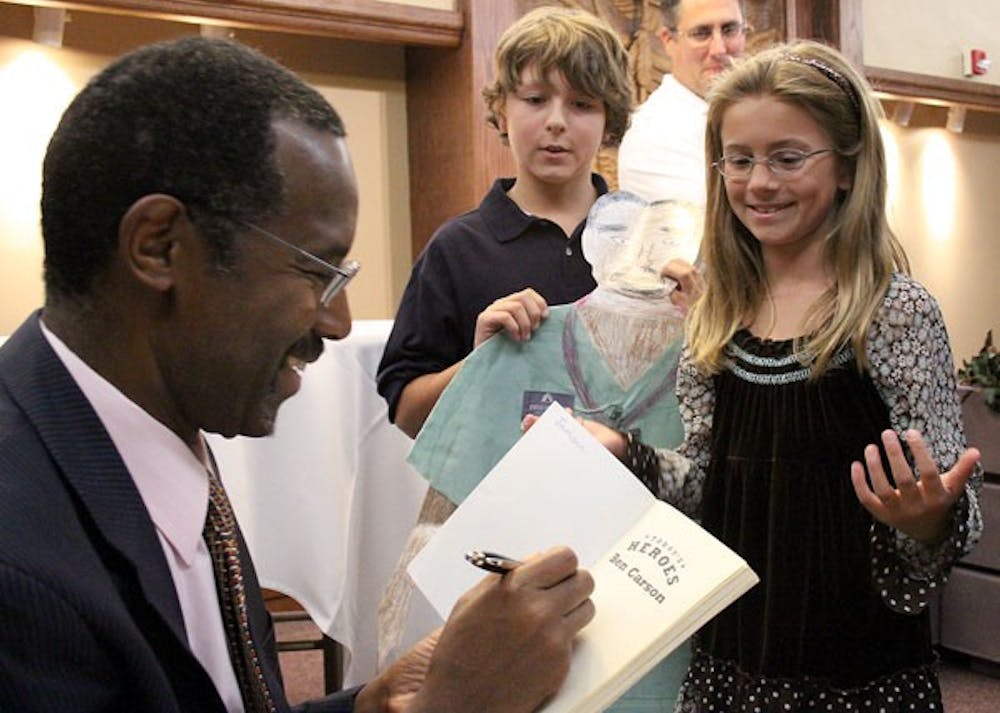Benjamin Carson, first person to separate conjoined twins, visits CMU

Benjamin Carson urged parents, educators and students Saturday night to emphasize education and caring to keep the United States great.
“The thing that is going to sustain our position in the world is not the ability to shoot 25 jump shots. It’s the ability to solve a quadric equation,” he said.
Carson stood before a nearly-full Plachta Auditorium to deliver a message of hope through his speech, “Gifted Hands.”
In 1987, Carson gained worldwide recognition for leading a team in the successful separation of conjoined twins. The 22-hour surgery was the first of its kind to separate twins joined at the head without fatalities to either infant.
Now the director of pediatric neurosurgery at Johns Hopkins Hospital in Baltimore, Md., Carson is a philanthropist and 2008 recipient of the Presidential Medal of Freedom.
Detroit freshman Amanda Johnson was brought to tears during the question-and-answer portion of Carson’s speech.
“I’ve known of his story since sixth grade,” Johnson said. “He’s been an inspiration to me.”
Johnson said many of Carson’s obstacles growing up in Detroit paralleled her own. She also is from a single-parent home and admits she was never looked at as the smart kid in early elementary.
Just as Carson’s mother was a defining influence in his education, Johnson said it was her mother’s decision to transfer her daughter to a better school with more supportive, hands-on teachers that encouraged her to excel.
‘Be nice’
During his speech, Carson focused on education, God, health care reform and the importance of being nice.
He asked to audience to take a ‘Nice Pledge’ for the next two weeks. Men will be chivalrous, and women will not curse men out for pulling out chairs. Carson told audience members to smile at the people they walk by, and converse on elevators.
“Be nice,” he said.
Carson later addressed questions about health care reform, stem cell usage, and even answered questions from a child who wondered what books he read growing up.
“He has a very compelling story that I believe touches a lot of different people in different ways,” said Denise Green, associate vice president for institutional diversity.
The Office of Institutional Diversity is one of many offices and organizations that worked together to bring Carson to campus.
Carson left attendees with the call to think big, and allow talent, God, knowledge and compassion to lead them.
“It’s very difficult to make progress without taking risks,” he said. “You have to do it in an intelligent way.”



